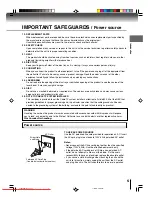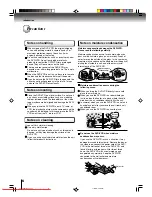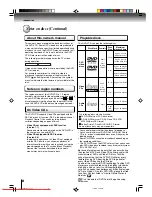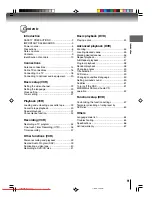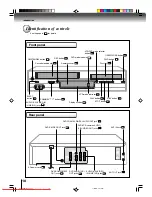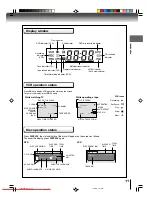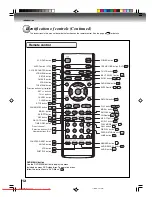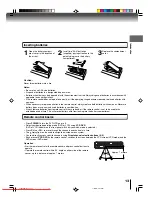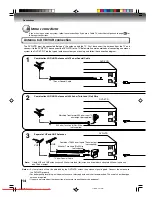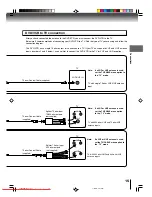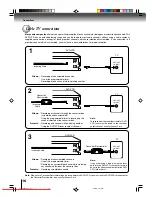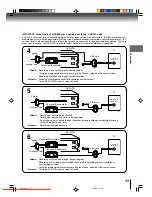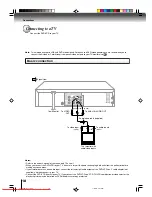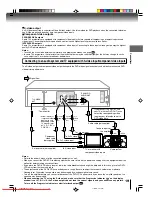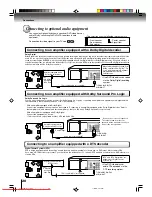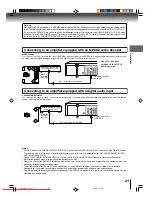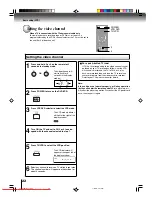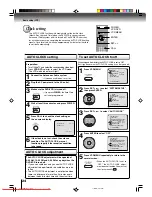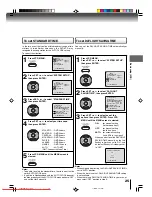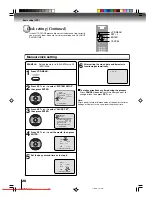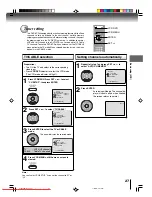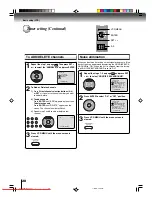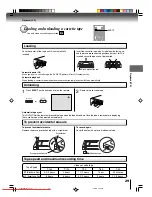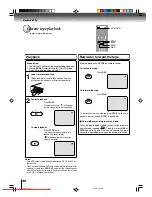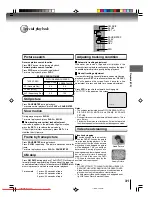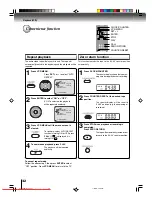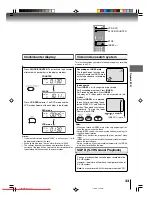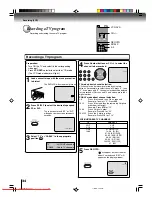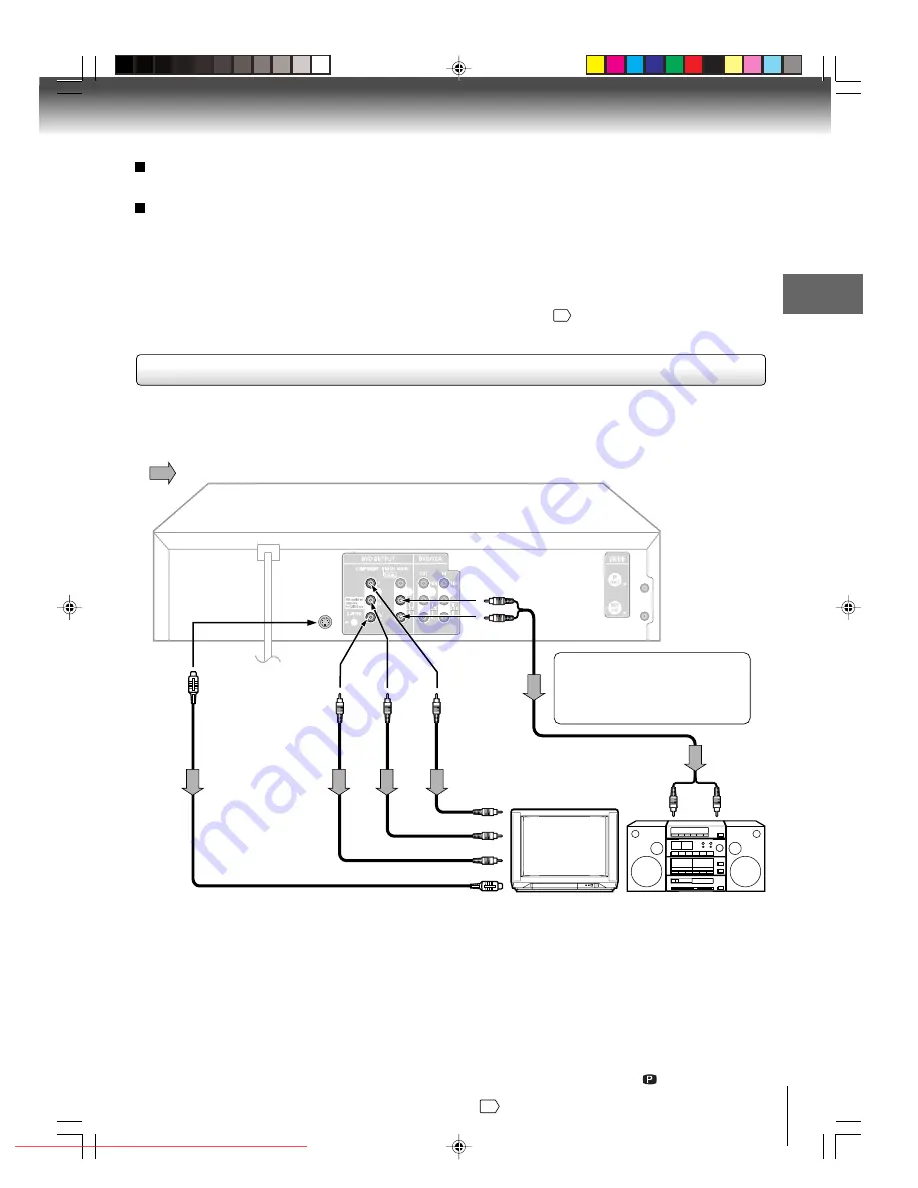
19
Connections
Notes:
• Refer to the owner’s manual of the connected equipment as well.
• When you connect the DVD/VCR to other equipment, be sure to turn off the power and unplug all of the equipment from the
wall outlet before making any connections.
• If you place the DVD/VCR near a tuner or radio, the radio broadcast sound might be distorted. In this case, place the DVD/
VCR away from the tuner and radio.
• The output sound of the DVD/VCR has a wide dynamic range. Be sure to adjust the receiver’s volume to a moderate
listening level. Otherwise, the speakers may be damaged by a sudden high volume sound.
• Turn off the amplifier before you connect or disconnect the DVD/VCR’s power cord. If you leave the amplifier power on, the
speakers may be damaged.
•
When connecting to a TV using the S-video jack, make sure that the Progressive indicator
“
”
on the display
window is not lit. If it is lit, the S-video outputs do not feed the correct signals and you cannot see any picture.
To turn off the Progressive indicator, select Interlaced output
62
.
Connecting to an audio system and TV equipped with S-video input/component video inputs
• Actual labels for
component video
inputs may vary
depending on the
TV manufacturer
(ex. Y, R-Y, B-Y or
Y, CB, CR).
TV or monitor with
component video inputs
To P
R/
C
R
video input
To P
R
/C
R
VIDEO
OUT
Signal flow
To wall outlet
To audio inputs of
the amplifier
(red)
(white)
(red)
(white)
To Y
VIDEO
OUT
To P
B
/C
B
VIDEO
OUT
To Y video input
To P
B/
C
B
video input
Audio system
To ANALOG
AUDIO OUT
To S-VIDEO
OUT
Component
video cable
(not supplied)
To S-video input
S-video cable (not supplied)
Audio cable (not supplied)
If you connect the DVD/VCR to
your TV with the DVD OUT jacks,
select the corresponding video
input on your television to watch
DVD video discs.
The S-video output and component video output transports the DVD-video signal exclusively and will deliver enhanced DVD
video picture performance.
S-video output
An S-Video connection is superior to Video (Yellow) output. Use this method for DVD playback when the connected television
has S-Video input, and does not have component video inputs.
Component video outputs
PROGRESSIVE outputs
Some TVs or monitors are equipped with component video inputs that are capable of reproducing a progressively scanned
video signal. Connecting to these inputs allows you to view the highest quality pictures with less flicker.
INTERLACED outputs
Some TVs or monitors are equipped with component video inputs. Connecting to these inputs allows you to enjoy the highest
quality DVD picture playback.
Notes:
• To switch the scan mode between the interlace and progressive modes, see page
62
.
• In some TVs or monitors, the color levels of the playback picture may be reduced slightly or the tint may change. In such a
case, adjust the TV or monitor for optimum performance.
2I30201B-En_p18-25
1/13/06, 2:47 PM
19
Downloaded from
www.Manualslib.com
manuals search engine
Downloaded From Disc-Player.com Toshiba Manuals

